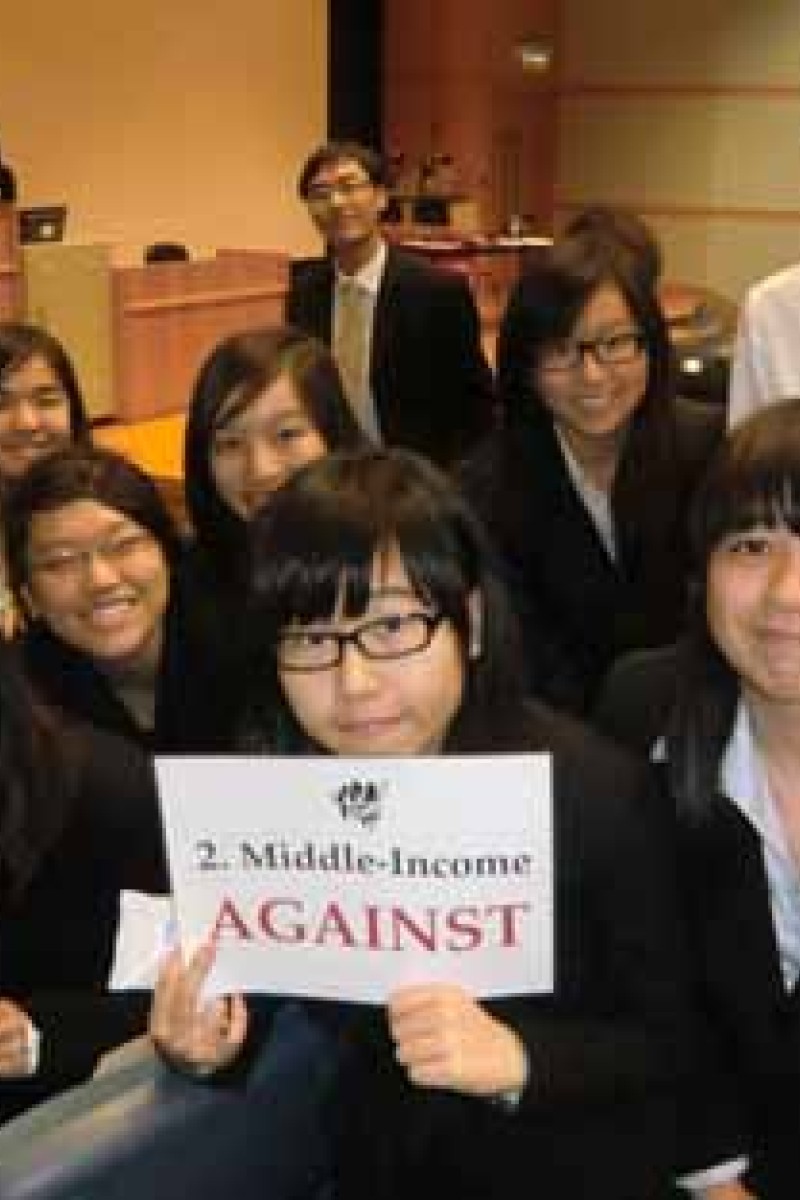
Students have a go at policy-making on one of the city's key issues - the gap between rich and poor - at the youth summit
 Secondary school students get to grips with education, housing and labour issues at the youth summit.
Secondary school students get to grips with education, housing and labour issues at the youth summit.Young Post sent three junior reporters to the morning and afternoon sessions.
Tsau Jin Cheng
With a theme of "Bridging the Gap", this year's summit focused on the widening wealth disparity in Hong Kong. Participants presented ideas and resolutions on issues related to the wealth gap. Three commission groups focused on the key areas of education, housing and labour.
Participants represented the views of six leadership groups: low-income group, middle-income group, new immigrants, ethnic minorities, small- and medium-sized enterprises and big corporations.
In the morning session, the commission groups presented their resolutions on issues including the effectiveness of the MPF (pension) system, the rate of unemployed university graduates, the minimum wage law, inflated floor areas and luxury housing.
A question-and-answer session and a vote on whether to pass the resolution was held at the end of every commission group presentation. Each of the six leadership groups held one vote.
Karen Cheung Ka-lun
The afternoon session covered education and housing in the context of "Bridging the Gap".
The process provided insight into the difficulties faced by the Legislative Council in making policies that strike a balance between meeting the interests of different groups - such as those on low incomes, big corporations, professionals, new immigrants, disabled people.
The housing commission proposed a land exchange scheme for the government to swap land with developers. The summit was a unique learning experience for the participants - it raised awareness of social issues and helped them develop critical thinking skills.
In some ways, the participants exercised more self-control than can often be seen in Legco - and no one had to resort to throwing banana skins to make their point.
Kate Ng
The housing commission, one of the six commissions, offered several plans to tackle property market problems. These included a land exchange scheme and a tax on idle land in a bid to reduce the amount of rural land owned by developers that is lying empty. Developers would be able to exchange land for urban slots of equivalent value with a view to achieving the government aim of developing new towns in the New Territories.
Land lying idle would be converted into larger areas for large-scale projects to stabilise the supply of property and rein in the overheated market.
The idle land tax would be an incentive for developers to exchange land with the government.
The education commission proposed an independent council to monitor the finances of Direct Subsidy Scheme schools. Annual financial reports would be checked, with penalties imposed on problematic schools.
The council would help increase financial transparency and create job opportunities for professionals such as accountants.
All resolutions that were passed will be followed up by the association and sent to the appropriate government department, the Legislative Council and the media.